
- How to Apply for A PhD Abroad – International Study
- Applying to a PhD
So you’ve decided to enrol onto a doctoral degree and study abroad at the same time. This is a great opportunity to develop yourself both personally and academically. However, do you actually go about securing a PhD as an international student? To help answer this for you, we’ve created this guide to explain how to apply for a PhD in foreign universities.

Why Do Your PhD Abroad?
There are many benefits to studying abroad.
Some PhD students do so as a way to develop a new language, discover more about a different culture, and to meet new people.
Besides personal reasons, undertaking a doctorate degree abroad can also for academic purposes. For example, in some countries, a particular research field may not be very popular and so there may not be many doctorate options available. In these cases, undertaking a PhD abroad will open up many more opportunities. It could also offer greater funding, lower tuition fees, better laboratory equipment and more experienced supervisors. Not only would these factors result in a more enjoyable PhD, but they could also contribute to greater career prospects. For example, you will likely have more opportunities to write publications, attend conferences and collaborate with other researchers. All of these will help you establish yourself as a respectable researcher within your field.
Is It Difficult to Apply to PhDs Abroad?
It’s not as difficult as you would imagine when it comes to applying to a PhD in a foreign country. Regardless of whether you’re applying to a university within the EU, such as the UK, Finland or Spain, or to universities within the US or Asia, the processes are relatively similar.
The differences in the application process can be categorised into three areas.
- the documents you need to provide,
- the prerequisite tests you need to sit,
- how much you need to communicate with the potential supervisors before applying.
We’ve provided a basic outline of the application processes below. Although this will provide you with a good starting point, we highly recommend you look at the university websites for specific instructions and guidance before applying.
Will I Need a Student Visa?
This will depend on what country you are applying to. For example:
- In the UK, applicants from outside the EU will need a Visa Tier 4 (Student). This will allow them to undertake a full-time PhD. However, due to UK visa restrictions, international students are unlikely to be able to enrol onto a part-time degree.
- In Germany, most students will not require a student visa but will require a residence permit.
- In the US, applicants will need to hold an F-1 Student Visa.
- In Asia, the requirements differ depending on the specific country. For example, in China, you will require an X1 Student Visa whereas in Singapore you will require a Student Pass.
Because of the significant differences between countries, we highly recommend it is highly that you check the requirements on an individual case-by-case basis. This is best done by checking the government website of the country you wish to apply to.
General Process for Applying to PhDs Abroad
When applying to a PhD position, most universities regardless of where they’re located will require:
- Online Application – An electronic form to provide your details and attach all supporting documents. You will also need to make any application fees during this process if required.
- Academic Transcripts – Most universities need a scanned copy of your transcripts when applying. You will only have to submit official hard copies once they have accepted your admission.
- CV – This should include details of your previous education, undergraduate degree and any experiences revenant to the field you’re applying to.
- Statement of Purpose/Personal Statement – A letter which outlines why you’re applying to the PhD and why you believe you’re suitable for the project.
- Letters of Recommendation – this should preferably be provided by your undergraduate degree course tutor or a professor who knows you well.
Language Tests
If your PhD is to be undertaken in English and English isn’t your first language, most universities will require you to sit an English language proficiency test. The most common tests, in order of popularity, are:
- IELTS (International English Language Testing Systems)
- TOEFL (Test of English as a Foreign Language)
- PTE (Pearson Test of English)
The minimum test scores will change from university to university. They will also vary depending on the research field. For example, research projects related to English Literature or Law will require relatively high scores whilst projects in Science and Engineering will require slightly lower scores. To provide an example, the University of Leicester in the UK requires a minimum overall IELTS score of 7 for Law PhDs but has a lower overall score requirement of 6 for Engineering PhDs.
Finding a PhD has never been this easy – search for a PhD by keyword, location or academic area of interest.
How to Apply for PhDs in EU Countries
For UK universities, there are generally two ways of applying. You can either apply directly through the university’s website or you can make an application through the UCAS Postgraduate system .
In Spain, Italy and Germany, before applying to a PhD you will first need to pass a pre-application process. This involves checking that your qualifications meet their eligibility requirements. Before undergoing this pre-screening process, it would be beneficial to first speak to your government. They may offer advice on how your countries qualification system corresponds to the qualification system in the country hosting the PhD.
Once you’ve made your application, the university will review it and get in contact with you. For most EU institutions, they will invite you for a Skype or telephone interview with them if they believe you may be a suitable candidate.
If you require a student visa to study in an EU country, it’s recommended that you submit your application at least 3-4 months before the proposed PhD start date.
How to Apply for PhDs in USA
In addition to the English language exams mentioned previously, international applicants will also need to sit additional exams to be eligible for PhDs in the USA. These are the GRE General Exam and GRE Subject Exam(s). The GRE Subject Exam(s) you will need to undertake will be specific to your field and will be specified by the university as part of their edibility requirements.
Securing a PhD position in the United States is considered relatively difficult compared to other countries. As a result, it is commonly recommended that you apply to at least 9 different universities to increase your chances of securing a position.
How to Apply for PhDs in Asia
As Asia covers a wide range of countries such as China, Hong Kong, Singapore, South Korea, UAE and India, their application processes naturally differ from one another. Therefore, check the specific application process for each university you’re interested to get the most accurate information.
To summarise:
- China – uses two centralised application services, CUAC and CUCAS. Both these services help international students find and apply to a PhD project in China. Students can also apply directly to a University if they wish to.
- Singapore – rather than applying to a specific research project, you will have to apply to a faculty or department within a University. Only once you have been accepted into the university department will their research projects become available to you. Like US universities, most universities in Singapore will have required you to have sat a GRE Exams prior to applying to them.
- UAE – you must apply directly to your chosen university. To be eligible for a PhD in UAE , you must hold a Master’s degree and it must be from a university recognised by their government. You will also be required to undertake GRE Exams before making your application.
How to Apply for PhDs in Australia
To apply to a PhD in Australia , you will first be expected to find and email a potential supervisor. If you’re an international student and you make an application directly to the university without doing this first, it’s highly likely that you won’t be considered for the position.
Upon discussing the project with the supervisor, they will instruct you to put in a formal application. This formal application will require the information previously outlined above.
Similar to EU institutions, if an Australian university believes you’re a strong candidate, they will likely invite you to a Skype or telephone interview.
Unlike EU universities, PhDs in Australian universities can start at any time of the year. Therefore, unless a specific funding requirement is attached to the project, there are usually no deadlines associated with applying to their PhDs. However, try to apply 3 to 4 months before you intend to start your studies.
Browse PhDs Now
Join thousands of students.
Join thousands of other students and stay up to date with the latest PhD programmes, funding opportunities and advice.
- Communications
- Computer Science
- Criminal Justice
- Environmental Management
- Forensic Psychology
- Healthcare Admin
- Human Resources
- Project Management
- Social work
- Special Education
- Sports Management
- Supply Chain Management
- Adult Education
- Business Intelligence
- Early Childhood Education
- Educational Technology
- Homeland Security
- Information Systems Security
- Information Technology
- International Business
- Management Information Systems
- Nonprofit Management
- School Counseling
- Academic Publishing Guide
- Building a Graduate School Resume or CV
- Choosing Between a Thesis or Non-thesis Master's Degree
- Expert Guide to Studying Abroad
- FAQ: Online Master's Degrees
- Grad School Guide Book
- Graduate School for Students with Disabilities
- Green Graduate Degrees
- How to Be a Successful Grad Student
- How to Choose the Right Graduate Program
- How to Get a Master's Degree in an Unrelated Field
- How to Transfer College Credits in Grad School
- How to Write a Winning Personal Statement
- Inside Graduate Admissions
- Ivy League Grad Schools
- Master's Degrees for Veterans
- Master's Degree for Women
- Mental Health in Grad School
- Progressive LGBTQ Graduate Degrees
- Should You Apply for a Graduate School Assistantship?
- Surviving Grad School with a Family
- Taking a Gap Year Before Grad School
- Women in STEM Graduate Resources
- Writing a Successful Statement of Purpose
- Alternative Ways to Pay for School
- The Best Part-Time Jobs During Grad School
- Company Funded Graduate School
- FAFSA For Grad Students
- Financial Aid Resources
- Graduate Student Loans
- Paying for Your Master's Degree
- Paying Off Student Loans
- Paying for Your PhD
- Fellowship Opportunities
- LGBTQ Scholarships
- MBA Scholarships
- Scholarship Resources
- Scholarships for Veterans
- Scholarships for Women
- Crushing the GRE Guidebook
- GMAT Guidebook
- Guide to the LSAT
- MCAT Prep for Medical School
- Study Guide: Exam Resources
- TOEFL Prep for Non-Native English Speakers
- Resources Studying Abroad for Graduate School
THE EXPERT GUIDE TO GRADUATE SCHOOL ABROAD Explore International Programs, Find Funding Options and Key Insight for Studying Abroad
Graduate school abroad doesn’t have to be a dream scenario – it can be easily within reach. Utilizing this guide’s insider perspective and experience, prospective graduate students can find programs that match their passion, learn what to expect and anticipate when living abroad, and find scholarship resources to help fund their studies.
- Turn Your Study Abroad Dream Into A Reality
10 Expert Tips for Selecting a Graduate School Abroad
Insiders’ share 10 ways studying abroad will change your life, learning curve: challenges of culture and learning abroad, break cultural barriers, not your bank – scholarships, grants & fellowships, cost comparison, the countdown to departure.
- Study Abroad Housing Options
TURN YOUR STUDY ABROAD DREAM INTO A REALITY
In the end the allure of experiencing a part of the world one might not otherwise explore is a powerful draw — studying abroad will provide students an unforgettable experience.
Finding the right program is an arduous task, but “enjoy the process of looking into schools,” Ramon advised. “You may have thought that Australia, for example, was the perfect fit for you. As you conclude your research, however, you find yourself applying to schools in South Africa.” The takeaway? Research and study programs and countries extensively. The following are tips to get you started.
Commit to what you want to study and then search for the right program. According to Ramon, “There is a program available abroad for nearly any discipline. You just have to look.”
Look for high-caliber programs recognized in the U.S. “Internet research can produce viable options, or you can find a sister program through undergraduate and graduate schools in the U.S.,” said Bridget. “Know what’s expected throughout the program and what your options are when it’s complete.”
Consider living expenses and cost of tuition. “Studying abroad can actually be less expensive,” according to Bridget, “as U.S. schools are cost-prohibitive.” Select programs are offered free.
Research length of the program. Some that take 4-6 years to complete in the U.S., for example, might require only 2-5 years in a different country. “And shorter programs mean savings on tuition and living expenses,” noted Ramon.
Find out about exam and application requirements for admission. Many schools abroad involve less paperwork and fewer or no exam scores, such as the GRE.
Consider financial aid. According to Bridget “traditional student loans are available through the U.S. for studying abroad — amounts can be adjusted to assist with airfare, housing and other expenses.”
What is the potential for residency and employment abroad upon completion of the degree? “Once abroad,” Bridget explained, “it’s easier to get a visa extension or work visa. And the student likely has made valuable career connections.”
Research language requirements. There many international programs offered in English. And since you’ll learn the native language out of living necessity, consider whether it appeals to you.
Find out if students have access to resources pertinent to the program they select — like specific documents, source material or collections available only in certain libraries, vaults or museums?
Consider probability of acceptance. According to Ramon, “many international schools allocate for a certain number of international students they can accept, which definitely improves your odds.
“If you’ll be working the in the states, a foreign degree can set you apart from the competition,” said Bridget. Ramon concurred. “While your undergraduate friends earn their MFA from a stateside school, imagine how impressive your CV would look with an MFA from a school out of London, Hong Kong or Dubai.”
While experiencing a new culture can be seen as a challenge, it’s also one of the greatest benefits of studying abroad — it’s a life changer. You’ll discover new ways of viewing the world: education, values, human interaction, customs and relationships. Acclimating can be difficult, but ultimately experiencing a different part of the world is one of the most enriching aspects of study abroad.
“The opportunity to learn a foreign language is invaluable,” said Ramon. If you study in a non-English speaking country, the opportunity to learn a new language or improve your existing foreign language skills can serve you throughout your career and your life.
According to Ramon, “Study abroad affords specific courses of study that directly relate to a location — Marine Biology in Australia, for example. “If your area of study is specific to a foreign country, there's no substitute for actual experience on the ground.”
Study abroad provides travel opportunities not otherwise possible. “The U.S. is huge. Countries in Europe and the UK, however, are much smaller and offer easy, accessible excursions,” noted Bridget. “The ability to travel and see so many different countries and cultures was incredible.”
In a different country, students will experience a different teaching philosophy — which while challenging is a wonderful learning opportunity. And students have the chance to collaborate with esteemed professors on various research projects. In fact, if there is a specific researcher or project that interests you, it’s worth exploring grad programs at that university.
With exposure to new ideals, opinions and ways of seeing the world, studying internationally broadens one’s approach and perspective on their career choice. “Living and obtaining a degree in an unfamiliar setting can offer a deeper understanding of your subject matter,” said Ramon.
Studying abroad affords the opportunity to meet people from all over the world, as many of your classmates are likely international students. You’ll make lifelong friends. “The friendships I established on study abroad 20 years ago have endured,” said Ramon. “We’re actually planning a reunion in Spain in the coming months.”
In basic terms, study abroad is fun — experiencing another part of the world, immersing yourself in a new culture, new people, exposure to different ways of thinking and learning, traveling. It’s a singular opportunity. So dig your heels in and enjoy. “It might be your last chance to travel extensively before settling into a career,” according to Bridget.
Personal growth and change is inevitable while abroad. Being on your own in foreign country, away from family, friends and everything familiar fosters independence, exploration and personal reflection. International study is an unparalleled opportunity to truly discover who you are.
It can be a challenge finding employment back home after completing a foreign program — make sure your degree is recognized in the U.S.
It’s one of the greatest benefits of studying internationally, but can also be one of the toughest challenges. Just ask Ramon: “Culture shock, culture shock, culture shock! Students should really prepare for everything to be different and be pleasantly surprised when certain things are similar.”
Study the country before you go and familiarize yourself with the culture. “But the best way to cope with this challenge is to remember you are on an adventure. Nothing will be as you expect it, and that’s exciting. It builds character and is a wonderful opportunity to learn the value of differences.”
Here are a few other challenges you’ll more than likely experience:
Academic Differences
Count on academic differences: different pedagogies, methods of testing, writing styles. Peak performance may be assessed differently, and you may not initially perform as well academically as you’re accustomed.
How to cope
Get to know your professors and communicate openly with them. Turn to your classmates and peers for support, many of whom are from different parts of the world and in the same boat as you. Help each other make the adjustment together.
Language Barriers
Although English is commonly spoken in other countries, language can still be a barrier — you’ll need to learn and use it outside the classroom. Even in English-speaking countries language can be onerous with its variant accents and vernacular.
Study the language before you go abroad and continue after you arrive. Make it a priority — immerse yourself in the culture and take any opportunity to practice the language with the locals.
According to Ramon “I think technology now can be one of the biggest deterrents to really immersing oneself in the culture. It’s too easy for students to sit in their apartments just scrolling through Facebook or texting back home instead of getting out and seeing what their new world has to offer.”
Set aside specific time to get on social media or Facetime and Skype. Keep international calls and texting to a minimum. Basically let go of your smart phone and embrace the world around you. But don’t hesitate to call in those moments when you just need to reach out to family.”
If you haven’t been budget conscious in the past, expect to be now. You don’t want the stress of money to interfere and distract from your education and your cultural experience.
Generate extra money beforehand, and practice your graduate school budget prior to leaving. Once settled in your new surroundings, look for cheap or free alternatives to the things you love. But be prepared to possibly forego the cappuccinos and pricey dinners out.
The Pains of Everyday Life
The day-to-day in a foreign country can be troublesome: seeking medical attention when you’re sick, communicating with police about a bike accident, opening a bank account or negotiating rent.
These obstacles are part of the entire experience of living and studying abroad. They make the experience memorable — things you’ll laugh about when it’s all over. In the moment, however, they’re frustrating. Call a friend for help if you’re feeling overwhelmed in a given situation.
Emotional Burdens
In their new surroundings, students build a completely different life from friends and family back home. It can feel isolating. You may feel like you’re missing out. And you’ll more than likely battle a little homesickness and possibly some degree of depression.
Focus on creating a social life in your new country. Academics are your top priority, so seek out friends who understand your school responsibilities and are willing to accommodate your busy schedule. You’ll return to your old life eventually, and those you left behind are a phone call away.
Be Prepared to Spend
Even if you find a program with low or free tuition in a relatively inexpensive country, you still need to be prepared financially to cover myriad expenses. So take a look.
Costs will vary, but here’s where your money’s going:
- Program application fees
- Passport or passport renewal
- Student visa/residency permit
- Entrance and/or departure fees
- Health insurance, immunizations and/or medical exams
- Rent: don’t forget security deposit
- Books and supplies
- Additional course fees
- Daily living expenses: utilities, Internet, groceries
- Monthly transportation pass
- Miscellaneous: entertainment, travel, cultural activities
- Exchange rate
Don’t Forget the Exchange Rate
It can be brutal, that fluctuation in currency. And while it may work in favor of certain students — those from China, for example — it can take a financial toll on students from the U.K., Europe and the U.S. Be reminded that a favorable exchange rate at the onset of a program doesn’t ensure the same at the program’s completion.
So what’s the solution? It’s simple. Think forward, and cushion your budget to accommodate the inconstancy of the exchange rate.
Study abroad isn’t cheap, but there are free options to help cover costs if you just look deep enough. So before you search for loans, opt for free grants, scholarships and fellowships. We’ve culled a few options.
Amount: Grant amounts, lengths and dates vary by country. Please consult the specific country summary for details.
Deadline: October 15
The Fulbright U.S. Student Program offers research, study and teaching opportunities in more than 140 countries to recent graduates and graduate students to further the “ promotion of international goodwill through the exchange of students in fields of education, culture, and science. ”
Amount: CLS covers many of the costs of studying abroad such as airfare and housing with a host family. Amounts vary. Students receive a stipend to cover incidentals and meals.
Deadline: November 30
The Critical Language Scholarship Program (CLS) is part of a U.S. Government effort to increase the number of American students mastering critical foreign languages. Programs in 14 different languages are offered, and students from any discipline or area of study may apply.
Amount: Varies per scholarship or grant — $1500 to $5000.
Deadline: Deadlines vary. See specific program for dates.
CIEE scholarships and grants make study abroad affordable for students “ who are devoted to specialized areas of study,” those with financial difficulties and high-achieving students . Students can choose from more than 200 programs in 40 different countries.
Amount: Fellowships are awarded for up to $24,000; lengths vary.
Deadline: January 28; on-campus deadlines may vary
Boren fellowships provide graduate students the opportunity to add an “international and language component to their education.” Recipients of Boren fellowships study in areas of the world “critical to U.S. interests,” with students committing to “working in the federal government at least one year after graduation.”
Amount: Minimum grant amount of $30,000.
Deadline: Applications are always accepted and reviewed as received.
Grants fund scholarships for international study with sustainable, measurable outcomes in one of the Rotary’s area of focus: Promoting Peace, Fighting Disease, Providing Clean Water, Saving Mothers and Children, Supporting Education, and Growing Local Economies.
Amount: Nine awards given in the amount of €10,000 each (currently $10,596.80).
Deadline: Round 1 — November 30; Round 2 — June 30
ISIC views study abroad as a way to develop personally and succeed in a future career. To that end, the organization sponsors this award to help cover costs, allowing students the benefits of international study and the opportunity to experience new cultures
Amount: $2,000
Deadline: Monthly deadline before the end of each month.
The Niche $2,000 No Essay College Scholarship is awarded each month to any student enrolling in a program within the next 12 months. The recipient is determined by random drawing, and students may apply each month.
Amount: Award covers “university fees, cost of living expenses, annual book grant, thesis grant, research and daily travel grants, fares to and from the United States and, where applicable, a contribution towards the support of a dependent spouse.
Deadline: Early October of year preceding tenure.
Forty American graduate students of high ability are selected each year to study at a UK institution in any field. Awarding Marshall Scholarships, the organization believes, serves to strengthen relationships between the “British and American peoples, their governments, and their institutions.”
Amount: The maximum stipend is $30,000, with the institutional payment estimated at $13,755.
Deadline: FAFSA applications accepted January 1 to June 30, but recommended to apply as early as possible. Students must reapply each year to continue receiving funds.
Jacob K. Javits Fellowship Program awards fellowships to students exhibiting high academic achievement, financial need and potential. Students earn graduate or Master of Fine Arts degrees in fields pertaining to the arts, humanities and social sciences.
Amount: Grant amounts, lengths and dates vary according to program.
Deadline: Dates vary according to program.
The Henry Luce Foundation offers several grant programs, aimed at “broadening knowledge and promoting the highest standards of service and leadership.” Programs range from American Art to Theology to Public Policy.
It can be hard to estimate what everyday items can cost in other countries. Explore how costs fluctuate across the world in cost comparisons of popular study abroad locations including New York; London; Florence; Sydney; Beijing; and San Jose, Costa Rica.
| U.S. | UK | Italy | Australia | Beijing | Costa Rica | |
|---|---|---|---|---|---|---|
| 1 Gallon of Gas | $2.86 | $4.65 | $6.46 | $3.82 | 4.18 | 4.70 |
| McDonald’s Combo Meal | $8 | $5.36 | $7.50 | $7.20 | $4.70 | $6.65 |
| 1 Gallon of Milk | $4.21 | $5.26 | $4.74 | $4.56 | $7.23 | $5.38 |
| Utilities (915 sq. ft. apartment) | $130.10 | $148.76 | $126.90 | $134.60 | $40.89 | $71.53 |
| Transportation/Monthly Pass | $116.50 | $140 | $37.54 | $115.21 | $23.50 | $56.98 |
| Meal at Mid-Range Restaurant for Two | $80 | $84.06 | $58.94 | $60.07 | $25.42 | $33.86 |
| Monthly Internet | $55 | $23.91 | $22.70 | $49.55 | $22.73 | $43.31 |
| 1-Bedroom Apt. City Center | $3,000 | $1,058.50 | $742.01 | $1,273.19 | $1,078.95 | $446.42 |
| 1-Bedroom Apt. Outside City Center | $1,820 | $812 | $569.25 | $918.58 | $537.08 | $374.47 |
| Movie — International Release | $14.50 | $12.23 | $8.57 | $12.93 | $12.53 | $6.5 |
Start researching study abroad programs. Work with your department if you’re currently in school, research programs online or seek the help of a study abroad placement advisor.
Once you’ve found a program, do the math. Consider academic expenses, cost of living in the host country and any application requirements.
Meet with an advisor to review potential costs and options for financial aid that may cover expenses. Remember there may be international financial aid available.
Apply for relevant scholarships, fellowships and grants.
Contact former professors and colleagues to request letters of recommendation
Compile your transcripts
Apply to the program
Start saving
Obtain or renew passport and apply for visa(s)
Apply for an International Student Identity Card (ISIC). It will afford you a wealth of discounts for everything from shopping to rail passes to museums and entertainment
You’re going to experience culture shock, so start studying your host country’s culture and language. Research online; seek out and speak to people who have lived in or are from the host country; and expose yourself to foods, music, films — anything related to the country’s culture
Know the laws of the country. Culture Crossing Guide
Begin studying your host country’s language
Apply for an international credit card — MasterCard, American Express or Visa
In the throes and excitement of planning, don’t forget to maintain your GPA
Confirm that financial aid is in place and all necessary paperwork has been filled out and submitted
Start preparing mentally. Journaling or blogging about your experiences is a great way to record your journey and get your head in the game.
Create a bucket list: What cities and countries do you want to visit while abroad? What artwork is a must-see? What cultural events unique to your host country do you want to attend?
Book your flight. Check your ISIC card — there may be applicable travel discounts available
Pay a visit to the doctor for a physical and any necessary vaccinations/immunizations. Keep a copy of your medical record with you.
Discuss any prescription medications you’re taking and their availability in your host country
Address the type of phone you want to use abroad and the service plan to best suit your needs
Many students opt for a cheap phone while abroad to communicate for locals. A little internet research can easily produce a solution.
Make a packing list. Check out The Official Year Abroad Guide for additional tips and advice. Note any items that need to be purchased, such as converters or adapters.
Check with your bank to ensure your ATM card works internationally
Notify people you’re leaving — friends, relatives, employers. Consider creating a Google doc with important information that everyone can access. Include flight information, contact information for people at home and abroad, contact info for your coordinator, health insurance information, and anything else you deem important.
Complete a change of address form so you’ll receive mail in your home country
Purchase travel insurance
Stock up on any medical necessities, such as prescription medications and extra contact lenses. Have a doctor’s note authorizing use of your meds and refills, and ensure that all over-the-counter drugs you carry are legal. Take your eye prescription along in case you lose eyewear or need replacements.
Make three copies of important docs: credit cards, passport, school acceptance letter, medical records, proof of health insurance and license. Leave a copy at home in the U.S., carry a copy in your bags when you travel, and once there leave a copy at your home abroad.
Make sure all financial aid docs are in order and up to date — such as scholarship application, loans and FAFSA renewals.
Confirm tuition and study abroad fees are paid
Confirm your flight
Exchange currency for local cash, around $200
Pack your luggage and carry on
STUDY ABROAD HOUSING OPTIONS
Housing has the potential to make or break your study abroad experience. You basically have three options: dormitories, apartments or homestays. Consider your finances, your personality and the type of environment in which you thrive so you can choose a home away from home that facilitates your academic pursuits.
Dormitories
Close proximity to campus.
Easier to make friends with students from around the world — not just those from your host country.
Fewer rules than a homestay arrangement
A meal plan, so no shopping and cooking required
Opportunities to practice local language
Less homesickness when surrounded by a group of students
Communal bathrooms, dining and laundry
Rules regarding overnight guest, smoking and drinking
You may not like the food
Lack of privacy
High noise levels
You may not room with a local so you can practice the language and be tempted to hang out with other English-speaking students.
Roommate challenges.
APARTMENTS Estimated Monthly Cost
| 1-Bedroom Apt. City Center | 1-Bedroom Apt. Outside City Center | |||
|---|---|---|---|---|
| U.S. | $3,000 | $1,820 | ||
| UK | $1,058.50 | $812 | $850 - $1,000 | |
| Italy | $742.01 | $569.25 | $450 - $1,200/one room in an apartment | |
| Australia | $1,273.19 | $918.58 | $940 - $1,311 | |
| Beijing | $1,078.95 | $537.08 | $306 - $540/one-bedroom apartment | |
| Costa Rica | $446.42 | $374.47 | $366 - $450/one-bedroom apartment |
Live like the locals.
Make your own rules.
Adhere to your own schedule.
More privacy — especially with a private room
Live with a mix of locals and internationals and share household responsibilities
You may feel more isolated than those students in dorms or homestay
Doing your own grocery shopping, laundry, cleaning and cooking
Difficulty of paying rent and bills in an unfamiliar language
Possible roommate conflicts
Fewer opportunities to practice local language.
Paying rent and bills in another language.
Authentic, home-cooked meals
Experience the culture of the country through the lens of a local family.
You’ll learn the language quicker
Exposure to real family life in another country who can offer advice and tips
Make social and local connections
No responsibility for grocery shopping, cooking or laundry
Difficulty communicating with the family initially
Chores and rules about overnight guests, smoking and drinking
Privy to family problems
Unusual foods you may not like
Possibly a lengthy commute
- Communication Portal
- PhD Programmes
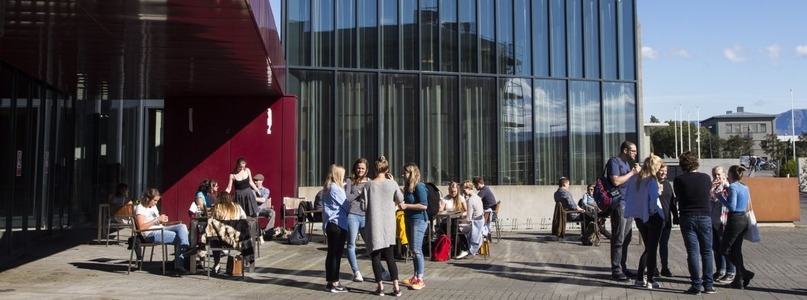
The strength of doctoral studies at the University of Iceland lies in the combination of organised PhD programmes and active participation in the international academic community.
The five schools of the University offer PhD programmes within a total of 26 faculties . Most PhD programmes at the University of Iceland consist of 180 ECTS. They normally take 3 to 5 years to complete. There are two official application dates: 15 April and 15 October, but some faculties accept applications continuously (See the websites of the respective School or Faculty for details or contact them directly).
The University of Iceland welcomes international students, and presently 30% of our PhD students are foreign nationals, representing a total of 39 countries. The International Division at UI provides information on practical issues for prospective international students.
International collaboration in the form of joint or double doctoral degrees with foreign universities is also encouraged.
At the University of Iceland heavy emphasis is placed on ensuring that doctoral programmes are in accordance with internationally recognised requirements.
Read more about the University's official Standards and requirements for the quality of doctoral programmes .
Vacant PhD positions can be found on the University of Iceland website . Some positions are advertised internationally. Students who are interested in subjects not advertised can contact the respective faculty for advice.
The University of Iceland offers numerous PhD programmes within each of its five different schools. Further information can be found on their respective websites:
- School of Education
- School of Engineering and Natural Sciences
- School of Health Sciences
- School of Humanities
- School of Social Sciences
Interdisciplinary programmes are offered within Environment and Natural Resources and Public Health Sciences .
Please click here for a list of contact persons by School and for interdisciplinary programmes .
There are different ways for PhD students to finance their cost of living. In some cases, grants are provided by the supervisor, while in other cases students themselves can apply for grants. For further information visit Funds and scholarships .
The Graduate School Email: [email protected]
The International Division Email: [email protected]
Contact persons by Schools and for interdisciplinary programmes .
- Administration and Staff
- Cooperation with Russia
- Photo Gallery
- Rules and Regulations
- Research at our School
- Doctoral Studies
- Educational Research Institute
- Student Office
- Board and staff
- Courses taught in English at the School of Engineering and Natural Sciences
- SENS Student Service
- Administration
- School of Health Sciences staff
- Collaboration
- Research support
- School Office
- Student Support
- About the School
- Administration & Staff
- Support Services
- Research projects
- Earth Science for Exchange Students
- PhD Program in Economics
- Student Orientation
- Undergraduate Studies
- Graduate Studies
- International Master´s programme in Food Science
- Admission Requirements
- PhD Studies
- Research Institutes
- Research Projects at the Faculty
- The F&N day
- Administration and Board
- Administration and staff
- About the Faculty
- Research Institutes at the Faculty of Law
- Joint Ph.D Programme with the University of Copenhagen
- Life- and Environmental Science for Exchange Students
- Undergraduate studies
- Fields in medicine
- Student Research Projects
- Research institutes
- Faculty staff
- Faculty administration
- The facilities
- Faculty rules
- Admission requirements
- Faculty Administration
- Faculty Staff
- The Faculty
- Why Reykjavík?
- Why Iceland for an MA in Sociology?
- About Pro-rectors
- Pro-Rector for Academic Affairs and Development
- Pro-Rector for Science
- General information
- The University Archives
- University Council
- University Council Committees
- University Forum
- Regulations of UI
- Internal Auditing
- Centre for Teaching and Learning
- Division of Finance
- Accounting department
- Division of Human Resources
- Payroll Office
- Information Technology
- International Division
- Marketing and Public Relations
- Operations and Resources
- Science and Innovation
- Accommodation Options
- Financial Considerations
- Residence and Work Permit
- University of Iceland Family Policy
- Staff Exchanges
- Equality and Diversity in the University of Iceland
- Academia and Multiculturalism
- Equal Rights Policy
- Rules of Procedure on the Response to Gender-related Harassment
- Sustainability and Environment
- University concerts
- Honorary Degrees
- Short history of the University
- Standards and Requirements for the Quality of Doctoral Programmes
- Standards and Requirements, Quality of Master's Programmes
- Strategy 2021-2026
- Values of the University
- University of Iceland Quality Assurance Policy
- Code of Ethics
- Equality and Diversity action plan
- Health and Safety Policy
- Language Policy
- Data Protection Policy
- Green Steps for Public Organizations
- Recycling: What to put where?
- The UI's goals on minimizing effects of climate change
- Sustainability at the University
- Brand Manual
- Promotional material
- Facts and figures
- The University
- Search for a specialist
- Event registration
- Centre for Digital Humanities and Arts (CDHA, MSHL)
- Chemical analysis, from atoms to biomolecules (EFNGREIN)
- Chemical analysis Instruments
- EPOS Iceland
- From molecules to precision medicine (SAMSNIÐ)
- Icelandic Research e-Infrastructure (IREI)
- Materials Science & Engineering Centre (MSE-Lab)
- Public Universities Network
- Icelandic Rectors' Conference
- University Hospital
- Partner Universities
- Aurora Universitites
- For Students
- Upcoming opportunities
- UI Science Park
- Students' Employment Agency
- Community Projects
- Student Community Projects
- Former employees
- Innovation at UI
- Research at the University
- Division of Science and Innovation
- Graduate School
- Funds and Scholarships
- University of Iceland Funds
- Research Institutions
- Research Centres
- Open Access at UI
- Open Access policy
- ROCS Research Centre
- Science Committee
- Science Ethics Committee
- What do you want to study?
- About international programmes
- Undergraduate studies A-Z
- Graduate studies A-Z
- Language Programmes
- Interdisciplinary Studies
- Applications for study
- Home university nomination
- Partner Universities - Database
- Applications for exchange studies
- Destinations
- Requirements for Exchange Studies
- Grants and funding
- The exchange process step-by-step
- Exchange programmes
- Traineeship Abroad
- Summer Abroad
- Distance Education
- Access to Ugla and the IT system
- Checklist for new students
- Study Information
- Academic Calendar
- Course Catalogue
- Examinations
- Credit System and Grades
- Credit transfer
- Apply to study at UI
- Applications
- International Students
- Supporting Documents
- Registration Fees
- Requirements
- Student residence permit for non-EEA/EFTA citizens
- Registering in Iceland for EEA/EFTA citizens
- Registering in Iceland for Nordic Citizens
- Service Desk
- Student Registration
- Academic counselling
- Career counselling
- Careers Connection
- Name change for trans students
- Who can claim services?
- For Teachers
- Psychological Services
- Cultural Adjustment
- More added support resources
- Seasonal affective disorder (SAD)
- Panic Attacks and Panic Disorder
- University Centre
- Student Life
- Living Costs
- Transportation
- Libraries and Bookstores
- Center for Writing
- About the Language Centre
- Self-Directed Language Learning
- Courses for Students and Staff
- International Cooperation
- Language Certificates
- Student Council
- Study and Computer Facilities
- Food and Drinks
- Rent a Classroom
- Sports Facilities
- Kindergarten and Child Care
Cookie Consent
To improve the website, the DAAD and third parties set cookies and process usage data . In doing so, the DAAD and third parties transfer usage data to third countries in which there is no level of data protection comparable to that under EU law. By clicking the "Accept all" button, you consent to this processing. You can also find selection options and explanations of these cookies and processing at the end of this page under "Cookies". There you can withdraw consent at any time with effect for the future.
- Privacy Policy
Jump to content
PhD Studies & Research

Science and research in Germany are characterised by a distinguished infrastructure, a wide variety of disciplines, well-equipped research facilities and competent staff. Germany offers various career opportunities for international PhD students and researchers.
Deutscher Akademischer Austauschdienst e.V. Kennedyallee 50 53175 Bonn
All addresses in the DAAD Network
DAAD Newsletters
Receive regular up-to-date information about our work and organisation.
Newsletter - DAAD
Useful Links
- Find Scholarships
- DAAD offices worldwide
Jump to top of page

Applications and Funding

Career and Networking

Thesis and Dissertation
- Academic Tools
Our Mission
Work with us, advertise with us, run a webinar, sponsored posts, write an article, create a talk, stories, advice and support for your academic journey..
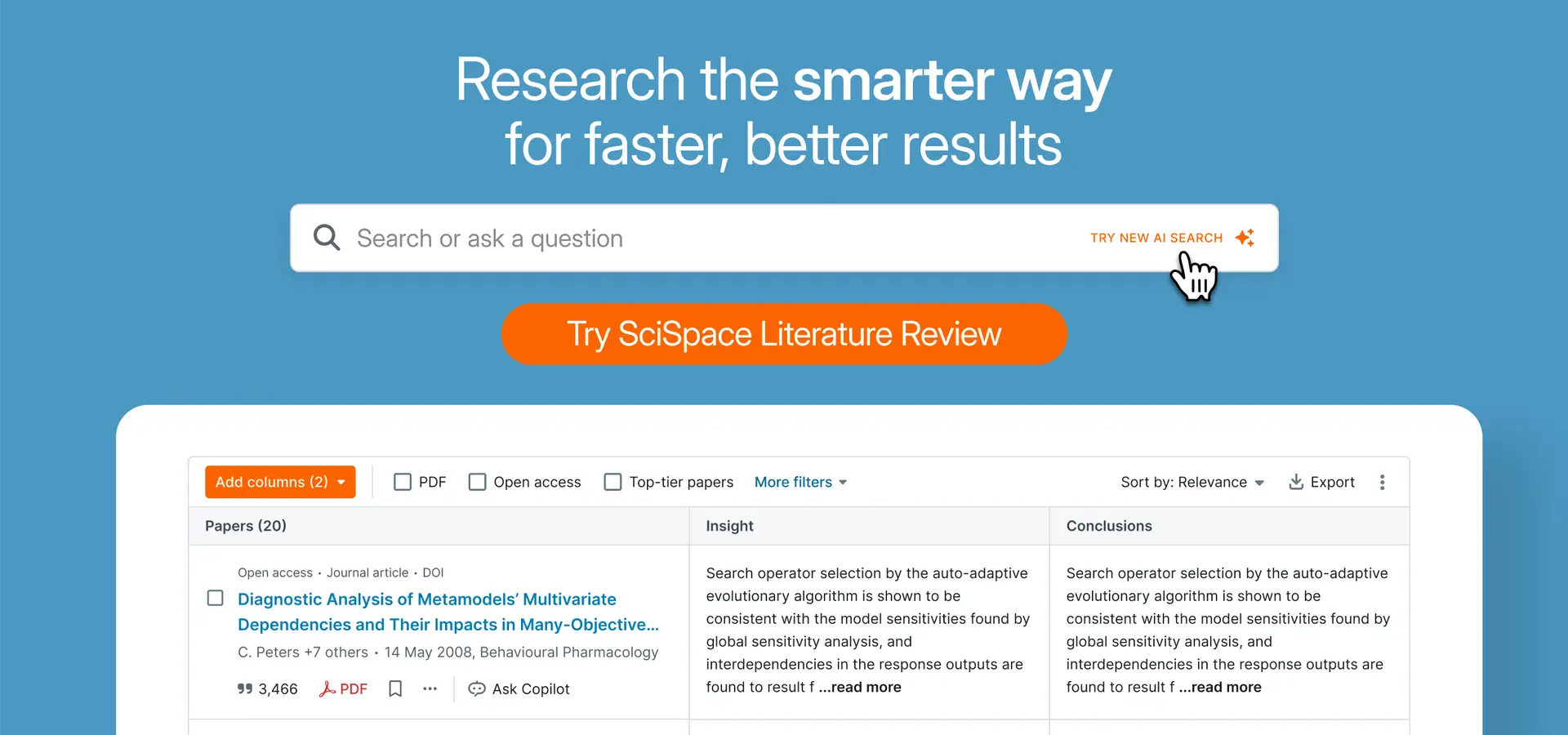
Applying for a PhD Abroad: How to Thrive as an International Student

- February 17, 2024
- Uppsala University
- After accepting an offer , Applications and Funding , Experiences , Getting started , International Student , Mental Health , PhD Applications , Wellbeing

Choosing to study a PhD abroad, especially in a foreign country with a new language, is not something to take lightly. But as I write this on my second day in Sweden, in my dorm room with the sounds of Swedish life outside my window, I’m here to tell you it’s not impossible. Despite the many challenges of pursuing an academic career outside your home country, the breadth of experiences and connections that come with it are well worth the short-term obstacles. Whether you opt for a PhD on the other side of the world or some where a bit closer to home , making the journey towards becoming an international PhD student is something deserving of applause. But there are several things I wish I would have known before choosing to pursue my PhD in a foreign country. From learning the language to understanding banks to asking questions about immigration and residency permits, there are many things to consider before making the jump abroad !
Which Country, Which Uni, Which Advisor?
So you’ve decided that you want to pursue a PhD abroad? That’s great! But there are some very important questions to ask yourself which will ultimately determine your future and where you’ll end up. One of the first beginner questions you must ask yourself, as I did, was, “Where do I want to go and why? ” While it’s fun to dream up your life in various foreign countries, you’re ultimately making a career choice by moving to a different country. So, it’s crucial that you have a solid reason for why you want to go to that specific country , and have a short – and long-term plan as to how you want to make the most of your time there. The second and third questions are mundane but also incredibly important : “What university do I want to apply to?” and, “Where are there openings? ” For me, choosing Sweden was prompted by an email telling me there were two openings to PhD programs . However, I was also prompted by another major factor, something we often hear in graduate studies. Namely, finding the right advisor(s) , and having a clear research question. M any questions related to PhD studies in your country of choice can be answered by a good advisor /supervisor . Of course, they can’t guarantee you actually get into the university, but they can help you decide if applying is a good choice for you and your choice of research. Making it clear what you’re looking for in an advisor can often help you narrow down where it is you want to study. In my experience, these went hand in hand. If you know what you’re researching, what niche you want to fill in terms of your applicable academic discourse, and you have a solid question with some evidence to back it up, then all you have to do is find a university department that aligns with your work and research interests . This can be far more complicated in practice, but if you let your research lead you in your search for a foreign university, paying attention to openings when they arise, then you’ll be set to go! Asking questions, and often, is key, and don’t be afraid to email potential advisors for help if you need it !
You’ve Been Accepted! Now What?
If you’ve found yourself with an acceptance letter and a willing advisor in a foreign university – congratulations! But now begins the myriad of complexities and tasks in order to actually be able to begin your life abroad as a student. Whether it’s getting a residence permit accepted, attempting to learn a foreign language, opening a new bank account, or arranging housing, there’s lots to juggle at this point. But if you take it one step at a time , and try to do things in order, you’ll find everything seems to fall into place.
Residence Permits, Housing and Language
One of the first things to think about is the residence permit which will allow you to live in your foreign country. Without it, all the other elements fall to the wayside as you won’t be able to stay in the country. Sometimes, as was the case in my experience, the process takes quite a while and includes several arduous steps. Be careful to familiarize yourself with the process before you begin! Further, the road towards finding housing may not be straight either. Take care to reach out to your university’s housing department and see if you can procure university housing. If not, make sure to look up, or ask around, where others look for housing.
After completing your residence permit and housing, you may want to start thinking about the language. Whether that means learning it on your own, finding a tutor, or even just watching some videos on the web, trying your best to learn the native language will help you feel at home. Although you may be nervous, learning how to say “Please” and “Thank you” might just win you your first international friend and open doors for you, who knows!?
Ultimately, making a list of important to lesser important points will be helped by reading and rereading the information that your university gives you, and by asking questions. Don’t be afraid to send that email if you don’t understand or if something doesn’t make sense. If you are clear with what your question is, then most likely you’ll find your answer.
Now the Fun Stuff Begins
Phew. It’s completed. You’ve done the heavy lifting of getting yourself set up to begin your studies abroad and, by some miracle, all your efforts have culminated in you moving to your new place. Now you’re on your own and have to do quite a few more tasks in order to really feel at home in your new city. From finding the train station to the grocery store, you have to know your surroundings, and give yourself time to find everything that your city has to offer its residents! One of the first few things I did when moving to Uppsala was find a church. For others, it may be a coffee shop or library that can offer you a place of community . Trying to put yourself into the community fabric of your city is such an important point in really feeling like you have a place here as a newly arrived foreigner. Although it’s scary, at times, to not really know the language and attempt to socialize, it’s often fruitful when you do. So, if you can find a place where you can integrate yourself into a community, then it’ll be easier to make that first friend. Part of that community building can also be finding places of culture to visit. In your city, there may be countless museums for you to see. All you have to do is just look for them. A helpful way of organizing all of what you find is by using Google Docs to make a list of those places you’ve been to and not been to yet. These include the location of your local train station and grocery stores!
Looking After Your Mental Health
Finally, when it comes to fun, finding your parks and recreational areas outside will be helpful in navigating the waters of how to spend time outdoors in nature. Don’t forget that you’re human. While you’re here to complete your PhD, you can’t forget that looking after your mental health is just as important as your academic success. Thus, plan accordingly and think about which parks you might want to go visit, and bodies of water you might want to go see. Spending time outdoors is a helpful way of fuelling the body and mind so you can be more productive when it’s time to work. Overall, if you stay focused on the fundamental steps that will let you live in your foreign country successfully and then let your interests lead the way, a whole new world will open up. While moving to a different country is a huge task, if you break it down into manageable steps and do one after the other, you’ll find yourself capable of doing things you had previously only imagined!
John David Vandevert

Using AI Tools to Support Your PhD: How SciSpace Can Help (ad)
Interested in Artificial Intelligence tools to supercharge your PhD experience? Look no further than SciSpace for AI assistance dedicated to academic research. This article guides you through the different ways that SciSpace can help you.

Rejection, Self-Worth, and Persistence: Making the Most of a PhD in Your Home Country
In this motivational article, the author reflects on their journey to securing a PhD in their home country of Nigeria after rejections abroad. They have come to see this redirection as a blessing in disguise. The article emphasises the importance of persistence and making the most of opportunities available to you, wherever that may be.

Mixed Methods PhDs: An Applied Guide
Are you thinking about using mixed methods (both quantitative and qualitative data) in your PhD? This article guides you through different ways of doing mixed methods PhD research, from proposal writing to collecting and analysing data. It emphasises the importance of rigor in mixed methods research and how to achieve this.
All views expressed are those of the individual authors and do not reflect the views of The PhD Place Ltd. See our Disclaimer
The PhD Place Ltd Is A Registered Limited Company In England & Wales, Number 14300924. Our registered address is 167-169 Great Portland Street, 5th Floor, London, England, W1W 5PF
© Copyright 2023. All Rights Reserved.
- PhD Application Advice for International Students
Written by Ben Taylor
Applying for a PhD can be a complicated process at the best of times, but if you’re making an international PhD application there are extra complexities to take into account, such as visas, residence permits and language tests.
This page is a checklist of the typical PhD requirements for international students, giving you an idea of the steps you’ll need to take when applying for a PhD abroad.
On this page
#1 choose your phd.
The first (and one of the most important!) parts of your international PhD journey is to find and choose a PhD programme that appeals to you and your research interests. Generally speaking, these will fall under one of the following two categories:
- Self-proposed projects, where you submit your own research proposal
- Advertised positions, where you apply to a PhD project that has already been agreed on
Our programme directory is the perfect place to begin this part of your search, with thousands of PhDs listed .
#2 Make sure you meet the PhD entry requirements for international students
You’ll need to check the entry requirements for your chosen PhD project and make sure that you meet them. You should ensure that your Bachelors and / or Masters qualification is in a relevant subject area and also that you achieved a sufficiently high enough academic grade .
In the UK, this grade will usually need to be a 2.1 at undergraduate level and a Merit or Distinction in your Masters. Depending on which country you completed your previous university education in, you may need to seek further advice and guidance on whether your qualification and grade meets the entry requirements. The UK ENIC (the UK’s centre for the recognition of international qualifications) can advise you on this if you’re applying for a UK PhD.
Proof of your English language proficiency is another important part of an international PhD application. If you haven’t already studied in an English-speaking country, you’ll usually need to provide an English language test result, such as IELTS or TOEFL .
#3 Contact a supervisor
The next box to tick in your international PhD application checklist is to contact and introduce yourself to the supervisor you’d like to work with during your doctorate.
If you’re applying for an advertised position, this part is fairly simple. But if you’re putting forward your own proposal, you’ll have to actually find and choose a supervisor first before you can contact them.
#4 Apply for the PhD!
Once you’ve received the backing of a supervisor, you can apply for the PhD itself. Bear in mind that you might need to provide and send certified copies of your academic transcripts and certificates, which can take a considerable amount of time if you need to have them translated and posted.
You may also be invited to take part in a video interview over Skype or Zoom.
#5 Check funding options
Being an international student can sometimes make it trickier to access PhD funding that is reserved for domestic researchers. However, the situation in the UK has improved in recent years, with international students eligible to apply for generous Research Council studentships from the 2021-22 academic year onwards.
In any case, there are several funding options in the UK that you should consider as an international student:
- Government bodies like UK Research and Innovation (UKRI), who administer the Research Council studentships mentioned above
- Charities and trusts
- University funding
Our guide to applying for PhD funding has lots of information and advice on navigating this part of the process.
#6 Apply for a PhD student visa
The final stage in the international PhD application process is to sort out your student visa. We’ve written a comprehensive guide to the UK’s point-based Student Route visa system , which has information on:
- Who actually needs a visa
- Eligibility
- Student visa sponsorship
If you’re already thinking about your post-PhD plans, the UK’s Graduate Route post-study work visa is an exciting opportunity, allowing PhD graduates to live and work in the UK for up to three years after finishing their doctorate.
Ready to do a PhD?
Search our project listings to find out what you could be studying.
Want More Updates & Advice?
Ben worked in the FindAPhD content team from 2017 to 2022, starting as an Assistant Content Writer and leaving as Student Content Manager. He focused on producing well-researched advice across a range of topics related to postgraduate study. Ben has a Bachelors degree in English Literature from the University of Sheffield and a Masters from the University of Amsterdam. Having also spent a semester at the University of Helsinki through the Erasmus programme, he’s no stranger to study abroad (or cold weather!).
You may also like...

What documents you need for a complete study abroad application, what they are and what they should and should not include.

Our guide explains the best ways to fund international PhD study in the UK, with information on all the main scholarships available to you.

You may need to take a language test to apply for a PhD abroad as an international student. Our guides explain recognised tests in English, German, French and other languages.

Did you know that you can use the FindAPhD search to uncover PhD projects with funding for international students? Here's how.

This guide tells you all about everything you need to apply for a PhD programme in Germany.

There are no fees for PhD study at most German universities and funding is available from a range of government agencies, research societies and other organisations.
FindAPhD. Copyright 2005-2024 All rights reserved.
Unknown ( change )
Have you got time to answer some quick questions about PhD study?
Select your nearest city
You haven’t completed your profile yet. To get the most out of FindAPhD, finish your profile and receive these benefits:
- Monthly chance to win one of ten £10 Amazon vouchers ; winners will be notified every month.*
- The latest PhD projects delivered straight to your inbox
- Access to our £6,000 scholarship competition
- Weekly newsletter with funding opportunities, research proposal tips and much more
- Early access to our physical and virtual postgraduate study fairs
Or begin browsing FindAPhD.com
or begin browsing FindAPhD.com
*Offer only available for the duration of your active subscription, and subject to change. You MUST claim your prize within 72 hours, if not we will redraw.

Create your account
Looking to list your PhD opportunities? Log in here .
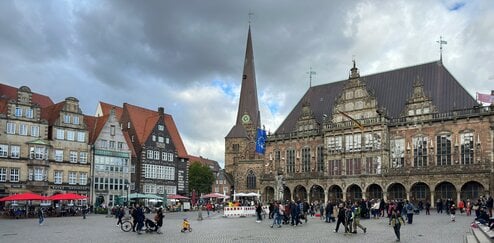
The 7 Best Countries for Grad School Abroad in 2025
Considering where to go abroad for graduate school in 2025 here are some of the best countries for graduate students across the globe, from ireland to new zealand..

- Share on Facebook
- Share on Twitter
- Share on Pinterest
You've finally decided: it's time for grad school. Maybe you've been out of school for a few years or are a current undergrad and know that graduate school is a necessary step in your academic and professional career. Whether you studied abroad during your bachelor’s and got hooked or you’re just looking to mix things up, doing your graduate degree abroad is a fabulous option.
Earning my Master of Public Health abroad in Dublin, Ireland was a great move for my professional development and personal growth. I was able to learn about public health from a truly international perspective not only from my Irish instructors but from my diverse cohort of classmates from all over the world. I made new friends and connections and even saved money on my tuition in the process!
The following destinations are some of the best countries for earning your master’s degree abroad. Chosen for their academic reputation, affordability, and number of graduate programs abroad in English, you’re bound to find a country that matches your goals and lifestyle.
Best for low cost education

💰 Average tuition cost : generally free; fees of $100-$400 USD per semester 💸 Average monthly cost of living : $850-$1,000 USD 🥇 Top fields of study : engineering, healthcare, business
It may sound too good to be true, but we’re here to tell you that it’s possible to study abroad in Germany tuition-free! Even international students can study in Germany by simply paying a small semester contribution to a number of prestigious public universities. Unlike in the US, private universities are not actually seen as superior as many public universities have better reputations and research records.
Germany is a top destination for students pursuing advanced degrees in engineering (especially automotive, electrical, and chemical). The county is also pioneering innovation in the healthcare field through the development of pharmaceuticals and medical equipment. Merck, Bayer, Siemens, BMW, and Volkswagen are a few of the companies in these sectors that hire international student graduates.
In addition to free tuition, international students are eligible for many scholarship opportunities to help offset other costs associated with studying.
Top universities in Germany
| University | Location | QS ranking | % int. students |
|---|---|---|---|
| Munich | 28 | 45% | |
| Munich | 59 | 28% | |
| Heidelberg | 84 | 18% |
Best for resume building
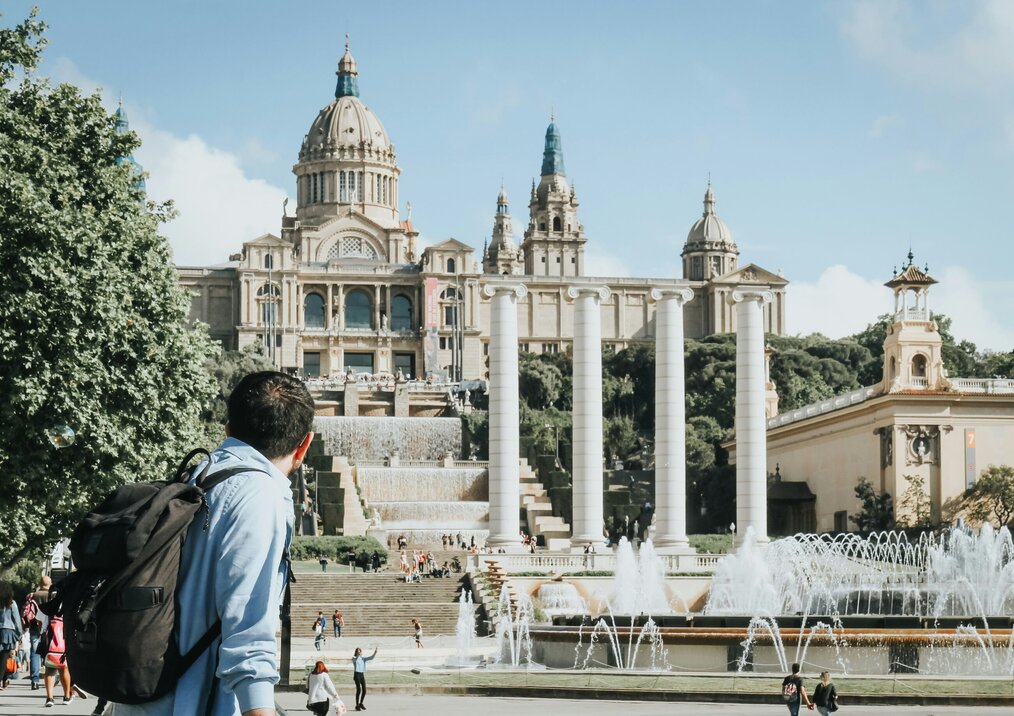
💰 Average tuition cost : $1,500-$6,000 USD 💸 Average monthly cost of living : $900-$1,300 USD 🥇 Top fields of study : marketing, tourism, finance
Spain has continued to add more graduate degrees taught fully in English in recent years and is an attractive destination to study a master’s degree due to its affordable tuition and modest cost of living. Home to some of the oldest universities in the world, Spain has a strong educational tradition. It is also a great place for students to get work experience while studying.
Not only can master’s students work up to 30 hours a week while studying in Spain, there is also a big emphasis on internships ( prácticas ). While some prácticas are unpaid, you’ll find others that offer a monthly stipend ( beca ). In a competitive global job market, it’s more important than ever to pair your education with practical work experience.
As an added bonus, Spain has an employment-seeking residence permit available to graduates that is valid for up to 2 years. If you get your foot in the door as an intern while studying, you may end up with a job contract!
Top universities in Spain
| University | Location | QS ranking | % int. students |
|---|---|---|---|
| Madrid | 164 | 31% | |
| Barcelona | 165 | 43% | |
| Barcelona | 175 | 68% |
Best for language immersion

💰 Average tuition cost : $100-$400 USD 💸 Average monthly cost of living : $700-$1,300 USD 🥇 Top fields of study : art, business, political science
For Francophiles, France is the obvious choice for graduate school abroad. If you’re not French culture-obsessed though, there are still a lot of reasons why France is one of the best countries for master’s level study.
Aside from the affordable tuition rates for international students and a wide selection of degrees in English, there are countless opportunities for language immersion. Even if you don’t speak French yet, you can significantly improve your language skills outside of the classroom. France has a proud linguistic tradition which, when paired with a low national English proficiency, provides the perfect atmosphere to use French in daily life.
Outside of France, French is an official language in over 25 countries. As a significant world language, adding French fluency to your repertoire will serve you well in whichever career field you choose!
Top universities in France
| University | Location | QS ranking | % int. students |
|---|---|---|---|
| Paris | 24 | 20% | |
| Paris | 46 | 32% | |
| Paris | 63 | 18% |
4. South Korea
Best for STEM students

💰 Average tuition cost : $11,000-$20,000 USD 💸 Average monthly cost of living : $1,100-$1,400 USD 🥇 Top fields of study : IT, engineering, natural sciences
South Korea is an up-and-coming country for studying a master’s degree abroad. It has gained popularity in recent years as an undergraduate study abroad destination but Korea has a lot to offer graduate students, too. Aside from the chance to engage with Korea’s dynamic culture and food scene, the country offers unique and rigorous master’s programs.
If you’re planning to study a subject within the STEM (science, tech, engineering, math) field, South Korea is a particularly attractive destination due to its emphasis on research and innovation. In fact, South Korea is one of the countries that produces the most STEM grads in the world. Graduate studies in the sciences and technology tend to be highly lab-focused, ensuring you get lots of hands-on experience to add to your skillset (and CV!).
Five Korean universities rank in the top 100 globally so earning a master’s degree here will be sure to be respected and recognized.
Top universities in South Korea
| University | Location | QS ranking | % int. students |
|---|---|---|---|
| Seoul | 21 | 29% | |
| Daejeon | 53 | 8% | |
| Seoul | 56 | 15% |
Best for top international reputation

💰 Average tuition cost : $19,000-$35,000 USD 💸 Average monthly cost of living : $850-$1,650 USD 🥇 Top fields of study : finance, social sciences, health & medicine
The UK is home to some of the best universities in the world. Whether you choose to return to your home country, stay in the UK, or move elsewhere after graduation, your degree will be recognized and respected.
Many US career fields that require specific accredited degrees maintain reciprocity agreements with the UK. Degrees in fields like library science, architecture, engineering, occupational therapy, accountancy, and more earned in the UK are recognized in the US for the purpose of licensure or certification.
While not automatic, many UK healthcare grads also have an easy path to licensure. For example, UK-trained nurses are eligible to take the NCLEX to become licensed in the US. What's more, these healthcare programs may
Top universities in the UK
| University | Location | QS ranking | % int. students |
|---|---|---|---|
| London | 2 | 60% | |
| Oxford | 3 | 46% | |
| Cambridge | 5 | 41% |

6. Singapore
Best for post-grad employability

💰 Average tuition cost : free; semester fee of $25,000-$40,000 USD 💸 Average monthly cost of living : $1,100-$2,500 USD 🥇 Top fields of study : computer science, engineering, manufacturing/supply chain
While Singapore isn’t among the most affordable countries for tuition on our list, the country boasts a great post-graduation employment rate for international students. If your dream is to stay and work in Singapore after you finish your studies, your chances here are high. Having some experience in your field is key to making you more competitive, so this Singapore is a great choice for mid-level professionals who decide to take on a master’s abroad.
Singapore has four official languages but English is widely spoken and is the primary language of instruction at universities. If you don’t have fluency in any additional languages, studying here will mean an easy linguistic transition. As a country, Singapore is safe, clean, modern, and diverse. International students will enjoy a welcoming, multicultural melting pot in this island nation.
Top universities in Singapore
| University | Location | QS ranking | % int. students |
|---|---|---|---|
| Singapore | 8 | 25% | |
| Singapore | 15 | 27% | |
| Singapore | 440 | 57% |
7. New Zealand
Best for eco-conscious individuals
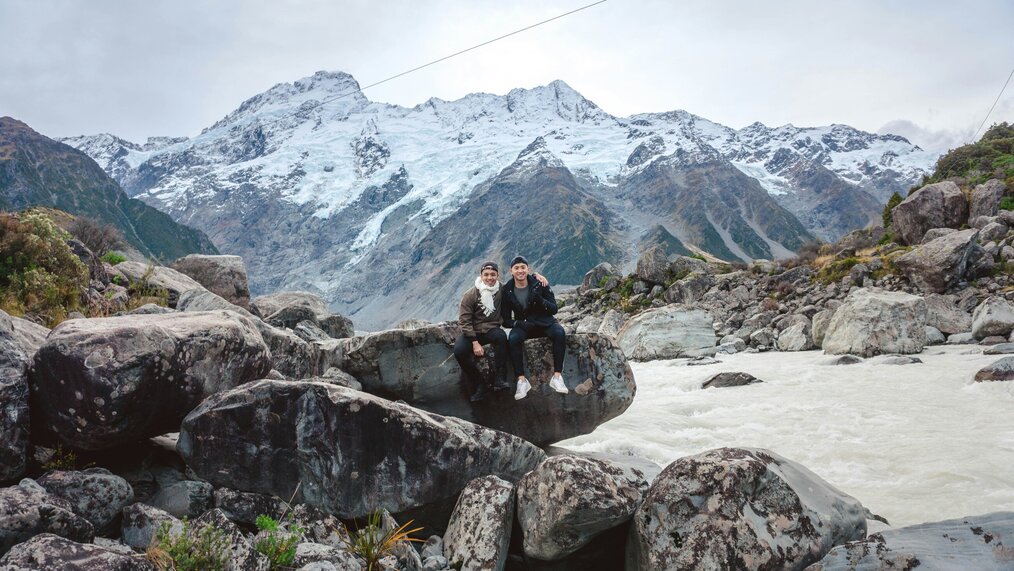
💰 Average tuition cost : $19,000-$30,000 USD 💸 Average monthly cost of living : $1,000-$1,400 USD 🥇 Top fields of study : environmental science, agriculture, sports science
New Zealand ’s natural beauty makes it the perfect location to study all things environmental. The international reputation of several sports science programs goes hand-in-hand with the outdoorsy, sporty lifestyle of many Kiwis. If you’re passionate about sustainable living or trying to up your eco-conscious practices, New Zealand is the obvious choice for a master’s degree abroad.
With a focus on preserving the stunning landscapes and biodiversity of the country, New Zealand has made a name for itself as a global leader in renewable energy. This little island boasts record-low greenhouse gas emissions and has a government that has pledged to support policies and laws aimed at fostering a greener future.
Read more : The Top Universities in New Zealand for International Students
Top universities in New Zealand
| University | Location | QS ranking | % int. students |
|---|---|---|---|
| Auckland | 65 | 31% | |
| Dunedin | 214 | 16% | |
| Hamilton | 235 | 15% |
Foreign degree recognition in the US
Earning a graduate degree abroad is a great way to gain an international perspective in your field. It’s important to know though if all the hard work you put in abroad will be recognized at home.
For fields that don’t require specific licensure or certification, the process is usually as easy as getting a degree equivalency report. Companies like World Education Services will evaluate your overseas degree and generate a report stating it is equivalent to a US degree. To work at the state health department, I simply presented an equivalency report for the MPH that I earned abroad.
If you are planning to pursue a degree within healthcare or a field that requires an accredited degree (ex. an ALA-accredited library science degree), you’ll need to make sure that your master’s will be accepted within your field. The US has reciprocal agreements with the UK, Canada, Australia, New Zealand, and Ireland for several professions so it’s worth doing some research to see if your field is included.
Using student loans for a master’s abroad

Federal financial aid isn’t just for studying in the US, you can also use it to earn your full graduate degree abroad. The US Department of Education maintains a list of eligible overseas universities that is updated quarterly and details all of the institutions that participate in the US federal student loan program.
If the school’s status is "eligible" it means they accept aid. “Deferment only” means that you’ll only be able to defer your current loan payments while studying abroad.
Read more : Why & How to Earn a Graduate Degree Abroad
Pursue your graduate degree abroad
Beyond these seven countries, there are obviously many other great destinations for international graduate students. Some that didn't make the list but might call out to you include Australia, the Netherlands, and even Canada!
Whichever country you choose in 2025, your master's degree will help you take the next step in your career and life. Research programs, make your choice wisely, and enjoy the adventure to come.
Read more about life abroad :
- The Pros & Cons of Earning a Graduate Degree Abroad
- Study in the UK vs the US: Which is Better for Your Master's Degree?
- 11 Best US Companies to Work for Abroad
- 10 Best Countries to Work Abroad
Keep on Reading

Pros and Cons of Earning an MBA Abroad

The 6 Best Universities in Sweden for International Students

10 Reasons to Enroll in Grad School Abroad

11 One-of-a-Kind Masters Degree Programs in Ireland

Master's Degrees in Ireland: All You Need to Know

The 12 Most Popular Masters Programs in Ireland
List of PhD Scholarships, Grants, and Fellowships for International Students
Warwick chancellor’s international scholarships.
Deadline: 9/12 Dec 2024 (annual) Study in: London, UK Course starts October 2024
Cambridge International Scholarships
Deadline: 3 Dec 2024/7 Jan 2025 (annual) Study in: UK Course starts October 2025
Commonwealth Master’s and PhD Scholarships for Developing Commonwealth Countries
Deadline: 15 Oct 2024 (annual) Study in: UK Course starts Sept/Oct 2025
Oxford-Weidenfeld and Hoffmann Scholarship and Leadership Programme
Deadline: 7/8/28 Jan 2024 (annual) Study in: UK Course starts 2025
Hong Kong PhD Fellowship Scheme for International Students
Deadline: 1 Dec 2024 (annual) Study in: Hong Kong, China Course starts September 2025
Gates Cambridge Scholarships for International Students
Deadline: 16 Oct/3 Dec 2024/7 Jan 2025 (annual) Study in: UK Course starts October 2025
Pierre Elliott Trudeau Foundation Doctoral Scholarships
Deadline: 25 Nov 2024 (annual) Study in: Canada Course starts May/Sept 2025
Belgian American Educational Foundation Fellowships
Deadline: 31 Oct 2024 (Annual) Study in: Belgium Course starts July-Dec 2025
Fulbright Foreign Student Program in USA
Deadline: varies, Feb-Oct 2024 Study in: USA Course starts AY 2025-2026
Rhodes Scholarships at Oxford University for International Students
Deadline: varies, July-Oct 2024 (annual) Study in: UK Course starts October 2024
Swiss Government Excellence Scholarships for Foreign Students
Deadline: varies, Sept-Dec 2024 Study in: Switzerland Next course starts 2025
AAUW International Fellowships in USA for Women
Deadline: 15 Nov 2024 (annual) Study in: USA Next course is 1 July 2025-30 June 2026
- 25+ University-wide Scholarships* for International Students
- Top 10 Scholarships in Switzerland for International Students
- Top 15+ Study Abroad Scholarships for US Citizens
- 10+ Scholarships in Canada for International Students
- Fully Funded Scholarships for International Students
- Top 25 Scholarships in USA for International Students
- Top 5 Countries Where Tuition is Free in 2024
- 10 Distance Learning Scholarships & Tuition Free Online Degree/Courses
- Top 10 Scholarships in Italy for International Students
- 35+ International Scholarships for Development-Related Studies
- Top 10 Prestigious Scholarships for the Best International Students
- Top 15 International Scholarships for Developing Country Students
Home | About | Contact | Sitemap | Terms of Use | Privacy Policy | Copyright

- phone_in_talk
- Study Destinations
- Universities
- Scholarships
- person Sign Up person Log in -->
- Study Abroad
PhD in Russia
No colleges record, why study phd (doctor of philosophy) in russia.
1. Research Excellence: Russian universities have a long history of research excellence and have made significant contributions to various fields of study. Pursuing a PhD in Russia allows students to work with renowned professors and researchers, gaining exposure to cutting-edge research and academic excellence.
2. Diverse Research Opportunities: Russia offers a wide range of research opportunities across various disciplines. Whether you are interested in natural sciences, engineering, social sciences, humanities, or arts, you can find research topics and programs that align with your academic interests.
3. Rich Cultural and Academic Heritage: Russia has a rich cultural and academic heritage, with a strong tradition in literature, science, and the arts. Studying in Russia can offer a unique cultural experience, exposure to different perspectives, and opportunities to explore its historical landmarks and artistic treasures.
4. Language of Instruction: While many PhD programs in Russia are taught in Russian, an increasing number of universities offer English-taught programs, especially in STEM (Science, Technology, Engineering, and Mathematics) fields. This makes studying in Russia more accessible to international students.
5. Affordability: Compared to some other countries, the cost of pursuing a PhD in Russia can be relatively affordable, with lower tuition fees and living expenses. There are also scholarship opportunities available for international students to support their studies.
6. International Collaboration: Russia actively promotes international collaboration in research and academia. As a PhD student in Russia, you may have opportunities to collaborate with scholars from different countries and participate in international conferences and research projects.
7. Research Funding: Many research projects and initiatives in Russia receive significant government funding. As a PhD student, you may have access to funding opportunities that can support your research and academic pursuits.
8. Career Opportunities: Completing a PhD in Russia can enhance your career prospects. Graduates with a PhD are often sought after by academic institutions, research organizations, and industry, both in Russia and globally.
9. Research Facilities: Russian universities are equipped with state-of-the-art research facilities and laboratories, providing PhD students with the resources they need to conduct high-quality research.
10. Personal Growth: Pursuing a PhD is a significant academic journey that fosters personal growth, critical thinking, and problem-solving skills. Living and studying in a new country like Russia can also offer personal development and intercultural experiences.
Admission Intake for PhD (Doctor of Philosophy) in Russia
1. Fall Intake: The fall intake is the most common intake for PhD programs in Russia. It usually begins in September or October. The application process for the fall intake typically starts several months before the start of the academic year, usually around January to April. Prospective students are required to submit their applications, including all necessary documents, during this period.
2. Spring Intake: Some universities may offer a spring intake for PhD programs, which starts in February or March. However, the spring intake is less common, and not all universities may have this option available. The application process for the spring intake usually takes place several months in advance, starting around September to November of the previous year.
Top 10 Universities in Russia for PhD (Doctor of Philosophy)
| 74 | Lomonosov Moscow State University | Mathematics, Physics, Chemistry |
| 225 | Novosibirsk State University | Chemistry, Physics, Biology |
| 233 | Saint Petersburg State University | Physics, Linguistics, Psychology |
| 259 | Moscow Institute of Physics and Technology | Physics, Computer Science |
| 271 | Tomsk State University | History, Linguistics, Psychology |
| 277 | ITMO University | Computer Science, Physics, Chemistry |
| 351-400 | National Research Nuclear University (MEPhI) | Engineering, Physics, Chemistry |
| 401-450 | Higher School of Economics (HSE) | Economics, Sociology, Political Science |
| 501-550 | Moscow State University of Psychology and Education | Psychology, Education |
| 601-650 | Kazan Federal University | Engineering, Physics, Biology |
Cost of Studying PhD (Doctor of Philosophy) in Russia
| Tuition Fees | $1,500 - $10,000 (for international students) |
|
| Lower or subsidized fees for domestic students |
| Accommodation | $2,000 - $6,000 |
| Food | $1,200 - $2,000 |
| Transportation | $300 - $600 |
| Books & Supplies | $300 - $500 |
| Health Insurance | $200 - $400 |
| Miscellaneous | $800 - $1,500 |
|
|
|
Eligibility for doing PhD (Doctor of Philosophy) in Russia
1. Master's Degree: Applicants should generally hold a Master's degree (or its equivalent) in a relevant field of study. Some universities may consider candidates with exceptional academic records and a Bachelor's degree in specific cases, but a Master's degree is the standard requirement.
2. Academic Performance: Candidates should have an outstanding academic record in their previous studies, particularly in their Master's program. Good grades and research experience are often highly valued during the selection process.
3. Research Proposal: As part of the application process, applicants are typically required to submit a research proposal outlining their intended research topic and objectives for the PhD program. A well-defined and compelling research proposal can strengthen the application.
4. Language Proficiency: Proficiency in the language of instruction is essential. For programs taught in Russian, applicants may need to demonstrate their Russian language proficiency through standardized tests like TORFL (Test of Russian as a Foreign Language). Some universities also offer PhD programs in English, so proficiency in English may be required for those programs.
5. Letters of Recommendation: Applicants are usually asked to provide letters of recommendation from professors or academic mentors who can vouch for their academic capabilities and research potential.
6. Entrance Examination or Interview: Some universities may conduct an entrance examination or interview to assess the candidate's knowledge, research aptitude, and suitability for the PhD program.
7. Funding and Scholarships: International students should ensure they meet any additional requirements for scholarships or funding opportunities, as funding eligibility may vary depending on the program and the university.
8. Other Requirements: Depending on the field of study and the specific program, there might be additional requirements such as submitting academic publications, research papers, or participating in an interview with the potential supervisor.
Documents Required for PhD (Doctor of Philosophy) in Russia
1. Academic Transcripts: Official transcripts or academic records from all previous educational institutions, including Bachelor's and Master's degrees.
2. Diplomas and Degrees: Copies of Bachelor's and Master's degree diplomas or certificates.
3. Curriculum Vitae (CV): A detailed CV that includes information about academic achievements, research experience, publications (if any), and other relevant experiences.
4. Research Proposal: A well-defined research proposal outlining the research topic, objectives, methodology, and expected contributions to the field of study.
5. Letters of Recommendation: Usually, two or three letters of recommendation from professors or academic mentors who can speak about the applicant's academic and research potential.
6. Language Proficiency: If the program is taught in Russian, proof of Russian language proficiency is required, which may be demonstrated through standardized language tests such as TORFL (Test of Russian as a Foreign Language). For programs taught in English, proof of English language proficiency (e.g., IELTS or TOEFL scores) may be necessary.
7. Passport Copy: A copy of the applicant's passport or other identification documents.
8. Passport-Sized Photographs: Passport-sized photographs as per the university's specifications.
9. Statement of Purpose (SOP): A statement of purpose or motivation letter explaining the applicant's interest in pursuing a PhD and the reasons for choosing the specific program and university.
10. Entrance Examination or Interview: Some universities may require applicants to take an entrance examination or participate in an interview to assess their research aptitude and suitability for the PhD program.
11. Additional Documents: Some universities may request additional documents, such as academic publications, research papers, or other materials relevant to the field of study.
Scholarships for PhD (Doctor of Philosophy) in Russia
1. Russian Government Scholarships: The Russian government offers various scholarships for international students, including the "Russian Federation Government Scholarship" (also known as the "Open Doors Scholarship"). These scholarships cover tuition fees, accommodation, and a monthly stipend for living expenses.
2. Presidential Scholarships: These scholarships are awarded to talented Russian and international students pursuing doctoral studies in priority areas identified by the Russian government.
3. University Scholarships: Many Russian universities offer their own scholarships and grants to attract talented PhD students. These scholarships may be merit-based or need-based and can cover tuition fees or provide a stipend for living expenses.
4. Research Assistantships: Some PhD students may have the opportunity to work as research assistants under professors or research projects, which may include a stipend or a tuition fee waiver.
5. International Cooperation Programs: There are international cooperation programs between Russia and other countries that may offer funding opportunities for joint research projects or PhD studies.
6. Specialized Scholarships: Some scholarships are available for students pursuing research in specific fields such as science, technology, engineering, arts, humanities, and social sciences.
7. Corporate Scholarships: Some companies and organizations in Russia may offer scholarships to support students pursuing research in fields relevant to their industry.
8. Bilateral Agreements: Some countries have bilateral agreements with Russia that include provisions for scholarships and funding opportunities for students pursuing higher education in either country.
Jobs and Salary after PhD (Doctor of Philosophy) in Russia
1. Academic Research and Teaching: Many PhD graduates in Russia go on to pursue careers in academia as researchers and professors. They can work in universities, research institutions, and academic departments. Salaries for academic positions can vary widely depending on the institution and the academic rank, but an assistant professor may earn around $1,000 to $2,500 per month, while a full professor may earn $2,500 to $5,000 or more per month.
2. Industry Research and Development: PhD holders can work in research and development (R&D) departments of companies and industries related to their field of expertise. Salaries in the private sector can vary significantly depending on the industry, company size, and position. On average, R&D professionals with a PhD may earn around $1,500 to $3,500 per month.
3. Government and Public Sector: PhD graduates may find opportunities in government research organizations, policy-making institutions, and public sector agencies. Salaries in the government sector can vary based on the level of responsibility and the position. Senior government researchers may earn around $2,000 to $4,000 per month.
4. Consulting and Advisory Roles: Some PhD holders work as consultants or advisors, providing expertise and insights to businesses, NGOs, or government bodies. Salaries in consulting can vary significantly depending on the consultancy firm and the project's scope. Monthly earnings for consultants can range from $2,000 to $5,000 or more.
5. Entrepreneurship and Startups: Some PhD graduates may choose to start their own businesses based on their research findings or innovative ideas. Earnings can vary greatly depending on the success of the venture.
- WhatsApp --> WhatsApp
Book your Profile Evaluation to Study Abroad in Public Universities
Get a guaranteed scholarship of minimum 20% to study abroad, please enable javascript to view this page..
Want to skip Verification for now ? Click here

- Skip to main content
Looking to study abroad?
Explore subjects, courses and institutions across the world.
- Subject area*
- Destination All destinations Albania Argentina Australia Austria Bahrain Belgium Botswana Brazil Cambodia Canada Chile China Colombia Croatia Curacao Cyprus Czech Republic Denmark Ecuador Egypt Estonia Finland France Germany Ghana Greece Hong Kong Hungary Iceland India Indonesia Iran Ireland Israel Italy Japan Kazakhstan Lebanon Luxembourg Malaysia Malta Mauritius Mexico Morocco Nepal Netherlands New Zealand Nicaragua Norway Oman Panama Philippines Poland Portugal Qatar Russia Rwanda Saudi Arabia Serbia Singapore Slovakia South Africa South Korea Spain Sri Lanka St Lucia Sweden Switzerland Taiwan Thailand Turkey UAE UK USA Uganda Uzbekistan Venezuela Vietnam Yemen Africa Asia Australasia Europe North America South America
- Qualification Postgraduate (e.g. MA & PhD) Pre-masters Undergraduate (e.g. BA & Diploma) Vocational (e.g. Diploma) English courses (e.g. EFL)
Unsure what to study?
Advice, tips and guidance.
BROWSE ALL OUR ARTICLES
Unsure where to study?

Have you heard about?
What more can you do, check rankings.
There are many different rankings to consider. Compare them easily for each university, to make the right decision for you.
Read student reviews
It's always helpful to get a second opinion. Read honest and unbiased reviews by alumni and current students.
READ NEWS AND GUIDES
Keeping informed is key to enjoying your time abroad. Read the latest developments in study abroad, and our guides for popular queries.
APPLY ONLINE
By applying through us, you won't be alone during the application process. We'll guide and support you through each stage.
DOWNLOAD PROSPECTUSES
A prospectus provides everything you need to know about a university. Download them for when you need them, in seconds.
ENQUIRE TO INSTITUTIONS
Universities are waiting to befriend you and answer your queries. Contact them directly and get an answer to all your questions.
FIND STUDENT EVENTS
Attending a student event can be reassuring if you have any concerns. Browse upcoming events and speak to someone in person.
Watch student videos
See videos shot by international students themselves as they show what life is like studying at their university.
We work alongside...

Moscow Polytechnic University Open Doors Scholarship 2025, Russia
Moscow Polytechnic University is a Leading Russian University popular in engineering and technology. It is one of the oldest technical institutions in Russia. International students from all around the world can Study for Free at the Moscow Polytechnic University. Applications are open for the Moscow Polytechnic University Open Doors Scholarship 2025. Moscow Polytechnic University is a Part of the Russian Open Doors Scholarship Project . The Scholarship is available to pursue Bachelor , Master , PhD , and Post Doc programs. The Open Doors Scholarship is Funded by the Ministry of Science and Higher Education. The Program Covers Free Tuition and free Admission, and a Monthly Stipend is given to the Winners of the Open Doors Russian Scholarship. More details about the Scholarship criteria, the benefits, study fields, and the application details are given below.
Details About Moscow Polytechnic University Russian Open Doors Scholarship 2025
- Host Country : Russia
- Funded by : Ministry of Science and Higher Education
- Degree Level : Bachelor, Masters, PhD, post-doc
- November 20, 2024 (For BS, MS, and PhD)
- December 10, 2024 (For Post Doctoral)
Overview of the Open Doors Russian Government Scholarship
The Open Doors Scholarship is Funded by the Russian Government. It is a Single application process and the winners of this scholarship are granted free admission to a Russian University.
The Moscow Polytechnic University also comes under the Open Doors Scholarship Project.
Also Check: Russian Government Scholarship at HSE University 2025 (Funded)
Financial Benefits
- Free Higher Education in Russia.
- Free Admission.
- No Tuition Fee.
- Monthly Stipend.
- The language of Instruction is in English.
- Accommodation is not included, but accommodation provided by the University is cheap.
Also Check: Erasmus Mundus MAPP Scholarship 2025-2027 (Fully Funded)
Eligible Study Programs at Moscow Polytechnic University
- Computer and Data Science
- Engineering and technology
- Business and Management
- Linguistics and Modern Languages
- Linguistics and Modern LanguagesMaster Programs
- PhD Programs
- Check the List of Bachelor, Master, and PhD Programs
Eligibility Criteria
- The scholarship is open to all the Nationals.
- Open to any Foreign student.
- International students can apply for the Bachelor, Master, PhD, or Post Doctoral programs.
- Bachelor’s degree: This is the first level of university education. You need a high school diploma to apply.
- Master’s degree: This is the second level of university education. You need a bachelor’s degree to apply.
- PhD: This is the highest level of academic education. You need a master’s degree to apply.
- Post Doc : Participants of the postdoctoral track should have a PhD.
- All candidates must submit all the required documents.
Please read the Rules and FAQs before applying. The Academic year will start after March 2025.
Also Check: Sweden University Admissions for SI Global Scholarship 2025
How to Apply for the Moscow Polytechnic University Russian Open Doors Scholarship 2025?
The Application Process is online. It takes one click to Open all Doors. If you are interested in studying Free in the Moscow Polytechnic University then choose this University in the online form. The Step by Step information about the Open Doors Scholarship is available here . The official link is given below.
APPLY FOR THE OPEN DOORS SCHOLARSHIP AT MOSCOW POLYTECHNIC UNIVERSITY
RELATED ARTICLES MORE FROM AUTHOR

2025 AIT ADB Scholarship in Thailand (Fully Funded)

Thailand Chulalongkorn University Graduate Scholarship 2025 (Fully Funded)

Russian Government Scholarship at HSE University 2025 (Funded)

List of Fully Funded Scholarships in Thailand For 2025 Intake

SIIT Graduate Scholarship 2025 in Thailand (Fully Funded)

Open Doors Russian Government Scholarship 2025 (Study Free in Russia)
- Cookie Policy
- Privacy Policy
- Terms and Conditions
- WhatsApp Groups

IMAGES
VIDEO
COMMENTS
Netherlands Europe International Study. Holland and the Netherlands are a welcoming destination for international PhD study with historic and globally-renowned research universities. Our guide covers admissions, visas, fees and funding. Read more. PhD Study in Norway - A Guide for 2024.
Discover the top 15 cities to visit in the UK as a student, each offering unique experiences. Find and compare PhD programmes and postgraduate doctorate studies from top universities worldwide: search thousands of programmes to do research abroad or at home.
Besides personal reasons, undertaking a doctorate degree abroad can also for academic purposes. For example, in some countries, a particular research field may not be very popular and so there may not be many doctorate options available. In these cases, undertaking a PhD abroad will open up many more opportunities.
Students interested in attending grad school abroad can expect to pay anywhere from $500-$30,000 USD. In countries like France, Germany, and Iceland, international graduate students are only responsible for paying a small amount of money in fees. In the UK, Australia, and Ireland, students will pay on average between $15,000-$30,000 USD.
DPhil in Population Health for entry in October 2025 - funding available. Fully funded studentships available for our 4 year PhD programme. Fully funded joint PhD studentships between Birmingham & Melbourne. Full funding opportunities for outstanding applicants - Apply by 3 December 2024. Enhanced four-year Sainsbury PhD Studentships.
Bachelors degrees are normally worth 180 ECTS credits. Masters degrees are normally worth 120 ECTS credits. Each credit represents a certain amount of learning hours for a course, with a year of study usually being worth 60 credits. The independent research that makes up a PhD is harder to measure using this system.
Step 1: Decide How to Study Abroad as a PhD Student. When it comes to studying abroad as a PhD student, there are a variety of different ways you can weave international experiences into your PhD program, whether by pursuing a degree in another country, conducting fieldwork, enrolling in a study abroad program, or teaching overseas can do so.
THE EXPERT GUIDE TO GRADUATE SCHOOL ABROAD Explore International Programs, Find Funding Options and Key Insight for Studying Abroad . Graduate school abroad doesn't have to be a dream scenario - it can be easily within reach. Utilizing this guide's insider perspective and experience, prospective graduate students can find programs that match their passion, learn what to expect and ...
Studying for a PhD will involve a lot of reading, testing, writing and research. Don't worry, you won't have to do it all alone. On a PhD programme, you can usually interact with other doctoral students at seminars and workshops. In addition, you will have an appointed supervisor, who is usually an expert in the field, helping you refine ...
Degree Abroad. Doctorate. PhD Programs Abroad. Earning a PhD is something that few people wish to accomplish, and even fewer actually do. If you thought your bachelor's or master's degree programs were tough, gear up! Your schedule will be filled with early lectures, late night research, and countless presentations during nearly any PhD ...
The five schools of the University offer PhD programmes within a total of 26 faculties. Most PhD programmes at the University of Iceland consist of 180 ECTS. They normally take 3 to 5 years to complete. There are two official application dates: 15 April and 15 October, but some faculties accept applications continuously (See the websites of the ...
PhD Studies & Research. Science and research in Germany are characterised by a distinguished infrastructure, a wide variety of disciplines, well-equipped research facilities and competent staff. Germany offers various career opportunities for international PhD students and researchers. Discover Germany's top-tier PhD programs and research scene.
Choosing to study a PhD abroad, especially in a foreign country with a new language, is not something to take lightly. But as I write this on my second day in Sweden, in my dorm room with the sounds of Swedish life outside my window, I'm here to tell you it's not impossible. Despite the many challenges of pursuing an academic career outside your home country, the breadth of experiences and ...
Whether you prefer to cross the border into Canada or cross the Ocean into India, there are a broad range of graduate schools for Americans to consider. Although the 20 most popular destinations for study abroad are listed by Open Doors 2006 as United Kingdom, Italy, Spain, France, Australia, Mexico, Germany, China, Ireland, Costa Rica, Japan ...
Weather Moscow. Moscow has long, cold winters usually lasting from November to the end of March. Temperatures can fluctuate between the city centre and the suburbs between 5-10°C (41-50°F). Heat waves may occur during summer. Average low temperatures are -10°C (15°F) in February, while average highs reach 24°C (76°F) in July. Study a PhD ...
This page is a checklist of the typical PhD requirements for international students, giving you an idea of the steps you'll need to take when applying for a PhD abroad. On this page #1 Choose your PhD #2 Make sure you meet the PhD entry requirements for international students #3 Contact a supervisor #4 Apply for the PhD! #5 Check funding ...
💰 Average tuition cost: $11,000-$20,000 USD 💸 Average monthly cost of living: $1,100-$1,400 USD 🥇 Top fields of study: IT, engineering, natural sciences. South Korea is an up-and-coming country for studying a master's degree abroad. It has gained popularity in recent years as an undergraduate study abroad destination but Korea has a lot to offer graduate students, too.
PhD Scholarships for International Students from Developing Countries 2025-2026. Find Doctoral Scholarships for PhD Students, PhD Degree Scholarships, PhD Positions, PhD Fellowships, PhD Jobs in USA, Europe, Australia.
6 specialized graduate programs abroad. Depending on your preferred field of study, the best graduate programs might be abroad. 1. Mente Argentina: Master's in International Relations. Spend 15 months in Buenos Aires and enroll in this International Relations graduate program abroad.
Eligibility for doing PhD (Doctor of Philosophy) in Russia. 1. Master's Degree: Applicants should generally hold a Master's degree (or its equivalent) in a relevant field of study. Some universities may consider candidates with exceptional academic records and a Bachelor's degree in specific cases, but a Master's degree is the standard requirement.
Compared to their Western counterparts, Russian universities are very affordable. Tuition fees range between 1,450 and 7,500 EUR per year, and only a few study programmes cost more than 10,000 EUR. Living costs are also very low; most international students can handle all monthly expenses with a budget of 300-600 EUR.
Explore your study abroad options with over 4,800 universities, 32,000 courses and 7,000 scholarships from across the world, plus guides, advice and tips.
Pros and cons of international college. Major pros of going to college abroad include language learning opportunities, more advanced coursework, and cheaper tuition compared to the U.S. Potential cons include living costs and language barriers. Will My International Degree Get Me A Good Job?
PhD Programs; Check the List of Bachelor, Master, and PhD Programs Eligibility Criteria. The scholarship is open to all the Nationals. Open to any Foreign student. International students can apply for the Bachelor, Master, PhD, or Post Doctoral programs. Bachelor's degree: This is the first level of university education. You need a high ...